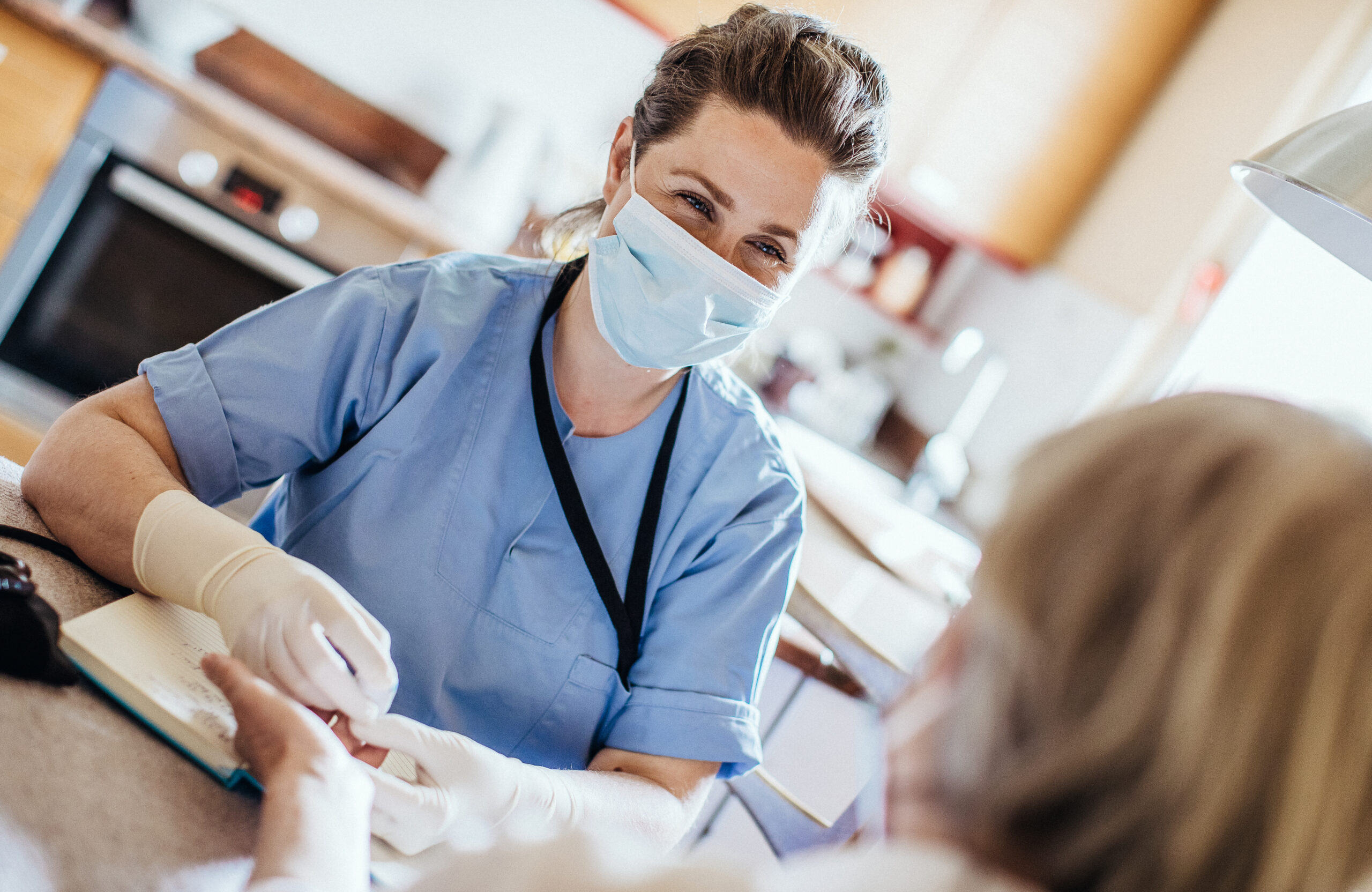May 11 is National Women’s Checkup Day, an effort started by the U.S. Department of Health and Human Services to remind women across the country to pencil in appointments with their doctors. In honor of this national day, and in conjunction with our new normal, Women’s Health Connecticut wants to make sure any woman who has postponed an annual exam, or is worried about making an appointment, knows that annuals are still very important and that we are doing everything we can to keep them safe while in-office. We spoke with Molly Shipman, DO, of Woodland Women’s Health Associates to answer your questions about wellness exams.
Why is it important for women to have an annual exam?
Annual gynecologic exams are an excellent opportunity to ensure women are up to date with their routine health maintenance. These visits include a careful review of a woman’s personal, family history associated, and age-based risk factors, so risk reduction measures can be identified, and wellness can be optimized. Though important, routine health does not only include cancer screening and discussions about a balanced diet and exercise. The annual exam also offers a safe space for women to address a myriad of concerns such as intimacy and safety, contraceptive choices, anxiety and depression, hormonal issues and symptoms, bone health, menstrual concerns, preconception counseling and genetic testing options and indications. Each woman is unique and different, so her visit will be unique to her. Yet for every woman, the annual exam is an important appointment that can cover a broad range of women’s health topics.
What procedures are done during an annual exam?
Exams include overall physical assessment, blood pressure check, height and weight measurements, evaluation of the chest and breasts, abdomen, and pelvis. Lymph nodes, skin, and glands such as the thyroid are evaluated. In certain patients and depending on patient preference, some parts of the exam may be deferred. For example, in young women who are not sexually active and have no pelvic complaints, a pelvic exam may not be necessary.
The pelvic exam typically includes an evaluation of the outside of the vulva including the opening to the bladder (urethra), vagina, and anus. A speculum is a special tool that is used to examine inside of the vagina including the assessment of the cervix. Often a pap smear is obtained to screen for precancer, or cancer and cultures can assess for infection. Most often an internal exam called a bimanual exam is performed, which helps the clinician determine the size, shape, and mobility of internal organs such as the uterus and ovaries. This exam can screen for ovarian cysts/masses, infection, cancer, fibroids, endometriosis, musculoskeletal issues, and pelvic organ prolapse. Depending on a woman’s complaints or risk factors, a rectal or rectovaginal exam may be recommended.
What would you say to women who are thinking about not scheduling an annual appointment at all this year for fear of COVID-19?
Women should not forgo their annual wellness visits. We are taking great strides to ensure the safety of our patients. We believe the preventative health visit is a vital opportunity to help women maintain optimal health. COVID-19 is a real concern and we must follow careful measures to continue to prevent exposures. However, it is prudent that women still have access to excellent care and that women’s health doesn’t suffer in the face of our fight against COVID-19. Women are entitled to have their needs met even in these difficult times. Modified facility measures will make this possible and keep our patients, staff, and communities out of harm’s way.
What steps is your practice taking to ensure patient safety regarding COVID-19?
Some steps to expect:
- Additional sanitization of all areas before and after each visit
- Seating with sanitized seat covers and accommodation of social distancing with limited seating
- Additional social distancing with staggered appointments
- Patients will wait in their car and be brought directly to a room
- Universal symptom screening, temperature check, hand sanitization prior to office entry
- Face covering/masks for all office staff and patients
- Continued restriction of guests inpatient rooms, restrictions lifted pending state guidelines and continued drop in infection rates
- Pre-check in over the phone/online prior to visit
Women’s Health Connecticut is encouraging patients to call their ObGyn office to inquire about specific in-office precautions they are taking.
How might an in-office appointment be different now for patients?
All patients and staff will wear masks. Physical distancing will be applied appropriately. Additional sanitization measures will be carried out with increased frequency and diligence. Patients should expect to have all their needs thoroughly addressed in the same manner they would have expected prior to the COVID crisis.
What is your practice doing to reschedule appointments that were postponed?
We will be contacting patients to see how best to address their needs and reschedule their appointments when it is most convenient for them. We will adjust provider schedules to allow for more appointments and safely spaced appointments to help accommodate our patients. As before, we will continue to offer telemedicine visits to those who prefer to avoid coming to the office; however, annual exams are not available through telemedicine. Appointments can be made over the phone or online.
What else would you like women to know?
I think it is important that we all remember to hold on to hope. We are here to lean on if you need us, do not be afraid to ask for care or help if you are having a problem. We will get through this together. I ask women and their families to continue social distancing and to take safety precautions despite the sacrifices. It is making a difference. We are here to answer questions and want to be a resource and support you in any way that we can. We wish everyone safety, calm, and health during these trying times.
For more information on precautions your ObGyn office is taking during COVID-19, please call your practice office.

